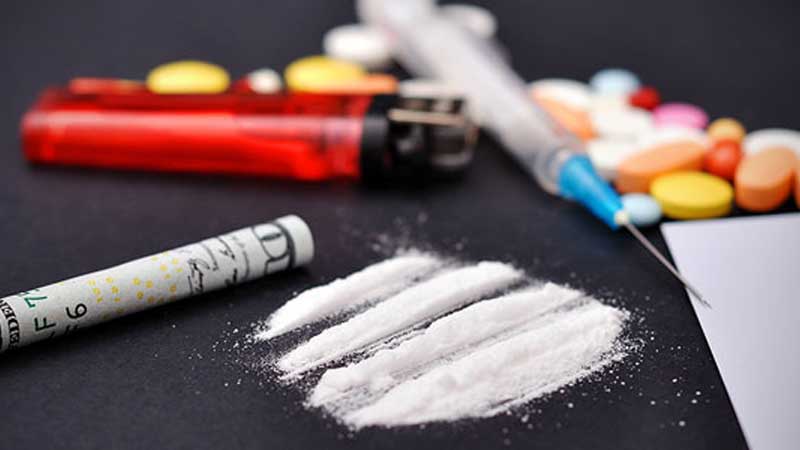Montréal Should Urge the Canadian Government to Decriminalize the Simple Possession of Drugs for Personal Use
Thursday, 21 January 2021 12:00.PM
In light of the upcoming meeting of the City Council on January 25 and 26, 2021, the Association des intervenants en dépendance du Québec (AIDQ), the Association québécoise pour la promotion de la santé des utilisateurs et utilisatrices de drogue (AQPSUD), Canadian Students for Sensible Drug Policy (CSSPD), and the Table des organismes communautaires montréalais de lutte contre le SIDA (TOMS) as well as the HIV Legal Network (HLN) immediately and unanimously urge the City of Montréal to take concrete action to decriminalize the simple possession of drugs for personal use.
Given that Montréal is experiencing an unprecedented number of deaths due to overdose, as elsewhere across the country, we ask that the City of Montréal follow the lead of other Canadian cities and, guided by existing and conclusive data, align with and join the growing consensus for the need to decriminalize simple drug possession. In addition to those with lived experience, members of the scientific community, stakeholders, national associations, and government agencies support this effort. The recognition and support of human rights, the preservation of the health and safety of those who use drugs and, ultimately, saving lives are the top priorities of this urgent call for change.
According to Vincent De Maisonneuve of the AQPSUD, drug users "are neither sick nor guilty." For 60 years, in its application of international conventions regarding narcotics, Canada, like many other countries, has conducted a war on drugs and implemented onerous policies. Today, too many people suffer from a situation that ceased to make sense long ago. Today, the COVID-19 pandemic has only exacerbated the impact of discrimination against and stigmatization of drug users. Note that measures taken in the context of the pandemic have needlessly compounded existing issues surrounding the national overdose crisis, for example, by reducing access to services, further aggravated by the recent imposition of a curfew, in addition to stoking a black market for illegal substances, at the expense of users. Today, thousands of lives have been shattered or lost. Put another way, the failure of traditional, repressive drug policies has never been more obvious!
Recently, this very failure led the City of Vancouver and Toronto's Board of Health to demand that the Government of Canada quickly take tangible action to decriminalize simple drug possession. Add to these concrete efforts the decision taken in November 2020 by the U.S. state of Oregon to decriminalize simple possession of certain drugs. According to TOMS President Sandra Wesley, "Repressive practices stem directly from the war on drugs. They have had a direct impact on the health, safety, and lives of those who take drugs by cutting them off from their community, from care, and from services. In Montréal, many are already dead, and others will die unless action is taken to decriminalize drugs." It is time to quickly complete the reform of Canada's drug policy and definitively strike down all repressive measures targeting drug users.
As a leader in harm reduction related to drug use, Montréal, in collaboration with other concerned government bodies, must increase harm reduction services and augment access to those services by supporting the many actions and efforts of the city's community organizations. We urge the Plante administration and all elected officials to immediately and unanimously support the motion introduced by City Councillors Marvin Rotrand and Christian Arseneault, which will be debated at the next meeting of the City Council to be held on January 25 and 26, 2021.
The demands listed in that motion echo our own. They ask the City of Montréal to take a clear position. Specifically, that the city
"join Toronto and Vancouver in calling for the Government of Canada to decriminalize the simple possession of drugs for personal use under the Controlled Drugs and Substances Act;" and
"collaborate with concerned stakeholders and its governmental partners to implement a harm reduction strategy to ensure that decriminalization be accompanied by both adapted and complementary practices and measures whose goal is the reduction of the effects of criminal penalties on drug addicts."
Furthermore, we ask that the City of Montréal follow the example of the City of Vancouver in order to undertake as quickly as possible steps to request a city-wide exemption from the Government of Canada to the Controlled Drugs and Substances Act.
"In Canada, there is a simple and immediate remedy to the harms of punitive drug policy." Federal Minister of Health Patty Hajdu can effectively decriminalize simple drug possession by granting a nation-wide exemption from this offence under section 56 of the Controlled Drugs and Substances Act. There is no need, nor any excuse, for delay, particularly amid unprecedented overdose death," said Richard Elliott, Executive Director, HIV Legal Network.
The AIDQ, AQPSUD, CSSDP, and TOMS are not the only ones who are concerned. "With the dual crisis of COVID-19 and overdoses, all the region's organizations, whether they work in prevention or harm reduction, are affected. On behalf of all these groups, we ask the City of Montréal to act quickly. It is not a legal question; it's about health and human rights, it's a matter of life and death!" AIDQ'S Executive Director Sandhia Vadlamudy said.
SOURCE: Association des intervenants en dépendance du Québec (AIDQ)
